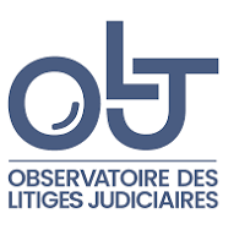Oct. 2, 2025
Hearings by a Committee or Public organisation

🌐suivre Marie-Anne Frison-Roche sur LinkedIn
🌐s'abonner à la Newsletter MAFR Regulation, Compliance, Law
🌐s'abonner à la Newsletter en vidéo MAFR Surplomb
🌐s'abonner à la Newsletter MaFR Droit & Art
____
► Référence complète : M.-A. Frison-Roche, Audition par le collège thématique "RSE" de l'Observatoire des litiges judiciaires de la Cour de cassation, " Points de contact entre le Droit de la Compliance et la RSE", Cour de cassation, 2 octobre 2025.
____
► Résumé de la présentation : La présentation dure une demie-heure. Elle est construite en deux temps, tout d'abord une présentation générale sur les "points de contact entre Droit de la compliance et RSE", en ce qu'ils dépendent de la conception que l'on a en pratique du Droit de la compliance, puis, dans la mesure où cette perspective intéresse plus particulièrement le collège thématique, un approfondissement sur les conséquences processuelles qu'il convient d'en tirer.
PREALABLE. DISTINGUER NETTEMENT LE DROIT DE LA COMPLIANCE DE LA RSE, SEULE VOIE POUR LES ARTICULER
1. ne pas confondre la morale, source d'inspiration du Droit, et le Droit.
Le Droit a des sources multiples, économiques, sociales, morales et religieuses. Les impératifs moraux inspirent le Droit, guident ceux qui adoptent des règles juridiques, guident les comportements. Mais ce sont deux ordres différents. Kelsen a construit sa "théorie pure" du Droit pour protéger le système juridique afin qu'il ne soit qu'inspiré par des valeurs qui sont dans une Norme fondamentale hors du système juridique. Ce que l'on appelle RSE est une norme qui inspire de nombreux blocs de compliance, par exemple Sapin 2, la loi Vigilance, la CSRD, la CS3D, etc. mais, de la même façon que la responsabilité juridique ne transforme pas le Deutéronome en Droit, ces textes ne transforment pas la RSE en Droit. Le Droit demeure autonome, n'est pas l'agent d'efficacité de l'éthique, qui trouverait enfin la puissance du Droit à son service.
De la même façon que le Droit économique n'est pas la façon dont des "lois économiques" trouvent une plus grande efficacité. Cela serait une erreur de pénétration entre deux ordres, et une vassalisation pour le Droit qui deviendrait l'agent d'effectivité d'une norme qui lui est hétéronome. Les économistes ne veulent pourtant au bénéfice de ce qui serait la loi économique. Carl Schmitt le voulait au bénéfice de ce qui serait la loi politique. Il est impératif dans un Etat de Droit que le Droit garde son autonomie par rapport à l'économie, à la politique et à l'éthique (ESG, RSE).
2. la loi peut, pour des motifs moraux, imposer à l'entreprise des obligations juridiques légales
Le Droit l'a toujours fait.
3. la responsabilité morale et la responsabilité juridique sont distinctes : la première n'entraîne pas ipso facto la seconde
4 l'entreprise peut par sa volonté s'imposer des obligations qui expriment des choix moraux, dès l'instant qu'ils ne contredisent pas la loi : elle juridicise sa responsabilité morale, les deux obligations se superposant
🔴mafr, 📝"Obligation sur obligation vaut", 2025
I. CE QU'EST EN PRATIQUE LE DROIT DE LA COMPLIANCE, BATI SUR L'OBLIGATION DE COMPLIANCE A LAQUELLE L'ENTREPRISE EST ASSUJETTIE
1. définition faible et définition forte de la compliance : ne pas réduire le Droit à une peau de chagrin, aider par sa "juridictionnalisation" à ce que la branche naissante du Droit de la compliance grandisse dans sa conception européenne
🔴 mafr (dir.),📕 Pour une Europe de la Compliance, 2019
🔴 mafr (dir.),📕 Les buts monumentaux de la compliance, 2022
🔴 mafr (dir.),📕 L'obligation de compliance , 2025
2. le rôle central du juge dans le droit européen de la compliance, en construction
🔴 mafr (dir.),📕 La juridictionnalisation de la compliance , 2024
3. l'obligation de vigilance, pointe avancée de l'obligation de compliance,
🔴mafr, 📝La vigilance, pointe avancée et part totale de l'obligation de compliance, 2025
II. POINTS DE CONTACT ENTRE L'OBLIGATION DE COMPLIANCE DES ENTREPRISES CRUCIALES ET LA RESPONSABILITE SOCIETALE DES ENTREPRISES
1. définition de l'obligation de compliance à laquelle l'entreprise cruciale est assujettie
2. "Obligation sur obligation vaut"
🔴mafr, 📝"Obligation sur obligation vaut", 2025
3. cumul possible des deux natures, engagement de droit, engagement de fait : régime juridique (ex. La Haye, 12 nov. 2024, Shell)
🔴mafr, 📝A quoi engagent les engagements, 2025
4. ll n'existe pas d'obligation juridique générale de veiller sur autrui ; il existe des obligations spéciales, une obligation spéciale sur l'entreprise maîtresse de sa chaine de valeur et, par exemple un souci éthique que l'entreprise, par sa volonté, peut juridiciser
🔴mafr, 📝Compliance, vigilance et responsabilité civile : mettre en ordre et raison garder, 2025
III. PERSPECTIVE PROCESSUELLES DES POINTS DE CONTACT ENTRE DROIT DE LA COMPLIANCE ET RSE
1. Nature transitivement systémique du contentieux de la compliance
🔴mafr, 📝Les causes systémiques portées devant le juge, 2021
🔴mafr, 📝Droit de la compliance et contentieux systémique, 2025
🔴mafr (dir.), 📕 Contentieux systémique émergent, 2025
2. Double primauté : trouver des solutions ; avoir souci du futur
🔴🧮Dans l’espace de justice, les pratiques juridictionnelles au service du futur, 2024
🔴Th. Goujon-Bethan, 📝Les enjeux présents et à venir de l'articulation des principes de procédure civile et commerciale avec la logique de compliance, 2025
3. Régression de la méthode punitive, efficacité du principe contradictoire et de l'accusatoire comme mode d'obtention des informations, engagements et "programmes"
🔴F. Ancel, 📝Devoir de vigilance et litiges commerciaux : une compétence à partager ?, 2025
🔴M. Chapuis, 📝Le juge de l'amiable et la compliance, 2025
🔴Th. Goujon-Bethan, 📝Les enjeux présents et à venir de l'articulation des principes de procédure civile et commerciale avec la logique de compliance, 2025
4. Préserver les droits de la défense et la sagesse probatoire dont les pavés sont attaqués dans le paradis de la RSE
🔴mafr, 📝Le juge, l'obligation de compliance et l'entreprise. Le système probatoire de la Compliance, 2023
🔴 mafr et M. Boissavy (dir.),📕 Compliance et droits de la défense. Enquêtes internes, CJIP, CRPC, 2024
🔴J.-Ch. Roda, 📝La preuve de la bonne exécution de la vigilance au regard du système probatoire de compliance,2025
____
March 23, 2022
Thesaurus : Doctrine
► Référence complète : A. Menais (dir.), Raison d'être, engagement et responsabilité, préf. B. Le Marie, postace O. Grégoire, EMS Éditions, 2022, 192 p.
____
► Présentation de l'ouvrage (faite par l'éditeur) : C’est une révolution calme, certes, mais une vraie révolution sociétale que la loi Pacte a engagée.
Au-delà du droit, c’est en effet un nouvel espace qui s’ouvre pour équilibrer les relations entre État, entreprises et individus ; un espace qui permet de construire au-delà du capitalisme à un moment où les effets de la pandémie mondiale ont créé, de facto, les conditions du changement.
Cet ouvrage collectif ne prétend pas résoudre l’apparent paradoxe entre attentes de changements profonds sur le long terme et envie d’immédiateté de résultats, mais bien de mettre en lumière les enjeux juridiques, humains et sociaux, en particulier la responsabilité de l’entreprise et de ses dirigeants, qu’emportent les nouvelles notions établies par la loi du 22 mai 2019.
Les témoignages des experts en ressources humaines, en théories des organisations, des investisseurs, des économistes et des dirigeants, contributeurs à cet ouvrage, permettent d’appréhender les défi s inédits dévoilés par la définition des raisons d’être et des missions pour l’entreprise. Ils livrent des regards différents et complémentaires sur la nouvelle finalité des entreprises et des institutions : leur raison d’être. Ce sont des pionniers engagés qui témoignent de leurs choix, du chemin qu’ils ont parcouru et parfois entamé bien avant que la loi n’existe, et des attentes nées de ce changement.
____
► Auteurs des contributions : Jean-Paul Agon, Jean-David Aurange, Ludovic Aventin, Jean-Paul Berthomé, Christophe Bonduelle, Franck Carnero, Sophie Chambon-Diallo, Yves Chapot, Hervé Coureil, Jean-Marc Daniel, Bruno Dondero, Emmanuelle Duez, Charlotte Duthoo, Geneviève Férone-Creuzet, Ashley Grice, Nicolas Guérin, Armand Hatchuel, Martin Hitzer, Augustin Jaclin, Emery Jacquillat, Sophie Javary, Eric Labaye, Kevin Levillain, Caroline de la Marnierre, Adeline Lescanne Gautier, Helle Liautaud, Didier Martin, Colin Mayer, Lynn Paine, Alissa Pelatan, Alexandre Perra, Fanny Picard, Floriane de Saint Pierre, Blanche Segrestin, Julie Serrier, Dominique Stucki, Thibault de Tersant, Mathias Vicherat et Frank Wismer
____

Updated: Oct. 25, 2017 (Initial publication: May 27, 2016)
Publications

► Full Reference: Frison-Roche, M.-A., Globalization from the point of view of Law, working paper, May 2017.
____
🎤 This working paper initially served as a basis for a synthesis report made in French in the colloquium organized by the Association Henri Capitant in the International German Days on the subject of "Le Droit et la Mondialisation" (Law and Globalization).
📝 Il sert dans un second temps de base à l'article paru dans l'ouvrage La Mondialisation.
📝 it serves as a second basis for the article (written in English, with a Spanish Summary) to be published in the Brezilian journal Rarb - Revista de Arbitragem e Mediação (Revue d`Arbitrage et Médiation).
It uses the Bilingual Dictionary of the Law of Regulation and Compliance.
____
► Summary of the Working: Globalization is a confusing phenomenon for the jurist. The first thing to do is to take its measure. Once it has been taken, it is essential that we allow ourselves to think of something about it, even if we have to think about it. For example, on whether the phenomenon is new or not, which allows a second assessment of what is taking place. If, in so far as the law can and must "pretend" to defend every being, a universal claim destined to face the global field of forces, the following question - but secondary - is formulated: quid facere? Nothing ? Next to nothing ? Or regulate? Or can we still claim that the Law fulfills its primary duty, which is to protect the weak, including the forces of globalization?
____
read the Working Paper below⤵️
May 11, 2017
Conferences

Reference : Frison-Roche, M.-A., Le contrat est-il l'instrument optimal de la RSE ? ("Is the Contract the optimal instrument of CSR?") in Trébulle, F.-G. (modérateur), Les instruments de la RSE : le contrat (The instruments of CSR"), cycle of conferences organized by the Cour de cassation (French Civil Supreme Court and the Universities of Paris-Dauphine, Paris VIII and Paris I),Cour de cassation, Paris, 11 mai 2017.
Read the slides (in French) as served as the basis of the conference les slides
Read the program on the Cour de cassation wesite (in French).
Read the program of the whole cycle of conferences in which this conference enters (in French)
Corporate Social Responsibility belongs to Economic Law. It thus enters into its logic of efficiency, leading to apprehend any legal mechanism as an instrument, the contract as the others. This does not mean that everything is only an instrument, on the contrary. Economic Law, when it takes the form of Regulation Law, places the principles in the aims pursued. It is in these principles that it can meet CSR if the goals are the same.
In view of these aims, everything is an instrument. On the scale of goals which are "monumental"
New laws, such as in France in 2016 the Sapin 2 law or in 2017 the law establishing a "duty of vigilance" with uncertain contours, may use the contract only as a vehicle for legal obligations to be performed by the company
But the contract can also be chosen as an instrument by the company in that it pursues the same goals of general interest, becoming global
In this, the contract converges towards what is being constructed: a Compliance Law.
On this notion of "Monumental Goal", see Frison-Roche, M-A., Compliance Law, 2016 ; From Regulation Law to Compliance Law, 2017.
For a whole demonstration, see Frison-Roche, M.-A.,From Regulation Law to Compliance Law, 2017.
On this notion of "global general interest", and maybe of "global public service", see Frison-Roche, M.A., From Regulation Law to Compliance Law, 2017 .
Dec. 17, 2014
Conferences

Toulouse School of Economics, Conference in Law and Economics
Organizers : Simone M. Sepe and Jean Tirole
Read The Working Paper (in French and in English)
Oct. 22, 2014
Thesaurus : 06.1. Textes de l'Union Européenne
Référence complète : Directive 2014/95/UE du Parlement européen et du Conseil du 22 octobre 2014 modifiant la directive 2013/34/UE en ce qui concerne la publication d'informations non financières et d'informations relatives à la diversité par certaines grandes entreprises et certains groupes